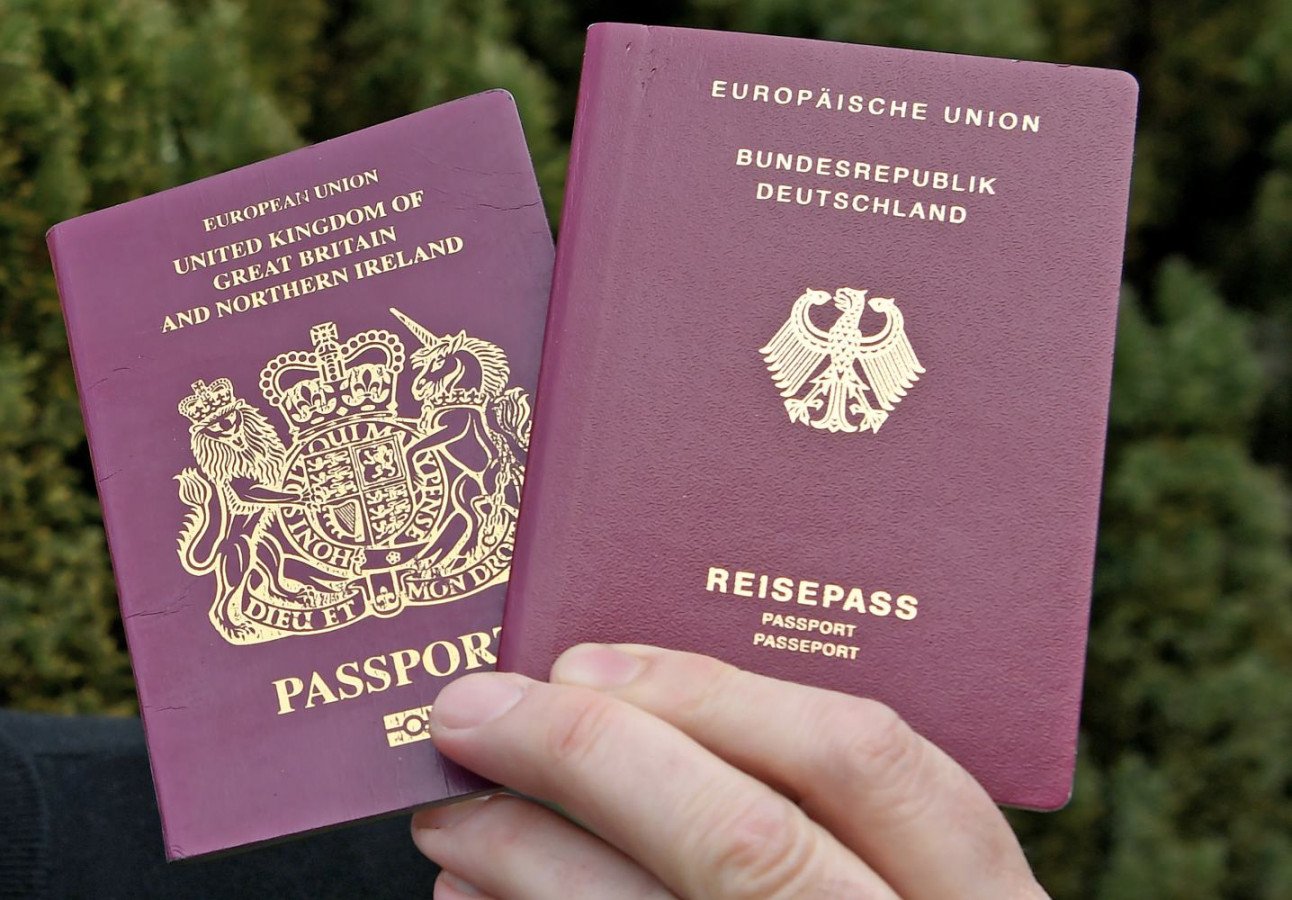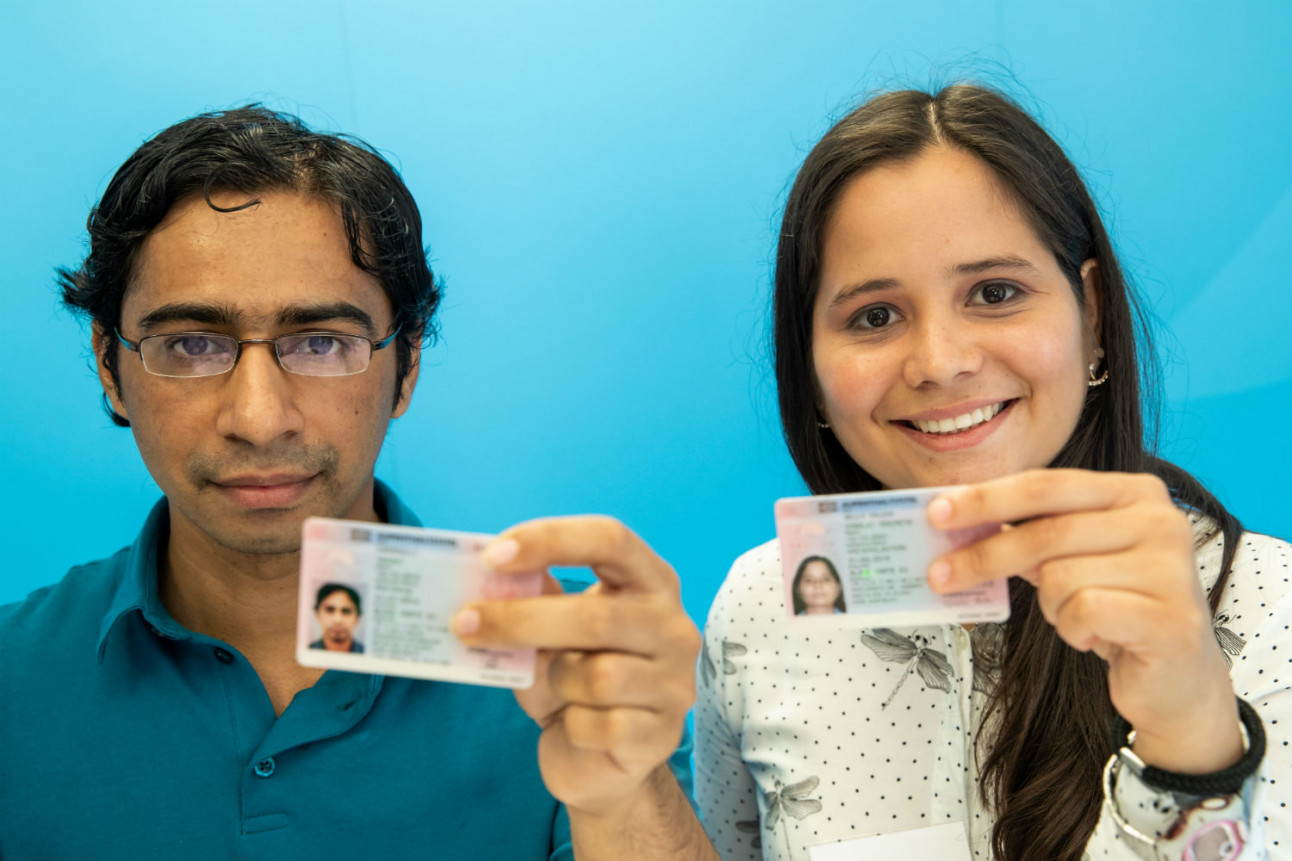Post-Brexit visa rules: How can Brits move to Germany in 2021 and beyond?

With the end of free movement, British citizens who are still in the UK now face greater hurdles when moving to Germany. Nevertheless, there are still a number of routes to take for those who want to emigrate after Brexit.
On January 1st 2021, Britain officially left the EU Single Market and Customs Union, completing the country’s long and laboured exit of the European Union.
Under the terms of the Withdrawal Agreement, Brits already in German at the date of exit are entitled to live and work in the country indefinitely. For those still in Britain, however, moving to Germany has become a more complicated process.
READ ALSO: Brexit: What changes in Germany from January 2021
So what are the new rules for Brits moving to Germany, and is it still possible to take the leap?
Brits are now third-country nationals
From now on, anyone with a UK passport looking to move to Germany will be treated much like anyone from any other so-called third-country - or non-EU - nation. That essentially means that if they want to stay in the country for an extended period of time, they’ll need to apply for a visa, much like someone from the US, Australia or Japan might have to.
The good news is that there are still a number of immigration routes to choose from, including studying for free at a German university or technical college, securing a job offer from a German employer or setting up a business in the country.

A British and German passport. Photo: DPA
Additionally, UK nationals are allowed to enter the Schengen Area for up to 90 days at a time in any 180-day period, meaning that you don’t necessarily have to secure your residence permit before you travel.
If you’re considering swapping life in the UK for life in vibrant Berlin, bustling Frankfurt or the soaring Bavarian Alps, here are few possible ways you can go about it.
Popular German visa categories
- Employment
For most people planning to work in Germany in a skilled profession, an employment visa is likely to be a good option – especially if you work in a field where there are shortages of skilled labour, such as medicine, engineering or programming.
Once you’ve found a suitable job, however, there are a number of conditions that have to be met by you and your employer, including proving that the position couldn’t be filled by an EU or German worker and guaranteeing you the same employment conditions as someone from the EU.
It’s by no means impossible to meet these standards, particularly if your work is highly skilled or in short supply in the German market, but fulfilling these conditions may make your job hunt a slightly more drawn-out process.
-
Freelancer
Another option is to opt for self-employment and apply for a freelance visa instead. To secure one of these, you’ll need to prove that your freelance work will have “positive economic or cultural effects” - which generally means working for German clients - and that you can support yourself financially. Artists and journalists who plan to live in Berlin can also apply for an Artist’s Visa – a unique visa category that isn’t available in other parts of Germany.
READ ALSO: What NOT to do when you're freelancing in Germany
-
Student
If you’re coming to Germany to study in higher education, you can get a student visa for the duration of your stay, which also gives you the option to stay on for up to a year and a half after your course to look for a job. If you’d like to take this route, the first step is to find a suitable course for you and apply to the university or technical college as an international student.
Be aware: some courses may require a very high level of German (C1 or above) for entry, while others aimed at international students may require none at all. If you don’t speak German fluently, look for programmes taught in English on portals like DAAD, the German Academic Exchange Service, that allow you to search for courses by language, subject and level.
-
Training / Internship
In order to move to Germany to intern at a company or undertake a traineeship, you’ll need to get a training or internship visa. Once again, you’ll need to be accepted as an intern before applying for your visa, and the company hiring you will need to supply information about the duration and terms of your internship with them.
-
Jobseeker
If you’re a skilled worker with a degree or vocational training and some experience in your profession, you may be able to get hold of a jobseeker’s visa that will allow you to stay in Germany for up to six months while you look for employment.
READ ALSO: How non-EU nationals can apply for a job seeker visa in Germany
For this visa, you’ll have to prove that you have enough money to cover your stay and stand a good chance of finding employment while in the country – and if you can’t find a job by the end of the six months, you may be heading back to the UK sooner than planned.
Another option: the EU Blue Card
Compared to most German visas, the EU Blue Card comes with a huge number of benefits: your immediate family can work in Germany without delay or limitations; you can secure permanent residency in just 2-3 years (depending on your level of German), and you have the opportunity to move freely within the EU after living for 18 months in Germany.

Two German Blue Card holders proudly displaying them. Photo: DPA
That said, EU Blue Cards are granted based on your salary and occupation - with the salary requirements rising every year - meaning you have to be a relatively high earner to obtain one.
READ ALSO: Here’s how much salary requirements for a Blue Card to Germany rose in 2021
As of 2021, this means a gross annual income of €56,800, although this can be reduced to €44,304 for people in “shortage occupations”, such as scientists, mathematicians, software developers and doctors.
The visa application process
Applications for German visas can be completed at any German consulate or embassy, either in Germany or in the UK. You’ll need to book an appointment at least 2-3 weeks in advance of your planned trip (or 2-3 weeks in advance of the end of your 90-day Schengen trip), and bring a number of documents with you to the appointment, which might include:
-
A signed residency permit application form.
-
Proof of accommodation in Germany
-
Bank statements or a statement of future earnings to prove you have sufficient funds to cover the duration of your stay.
-
Health insurance coverage in Germany, either from a private vendor or a state insurance company such as TK or AOK.
-
A passport that’s still valid for at least six months.
-
Evidence of a clean criminal record.
-
Evidence of your previous education, such as an MA, BA or vocational training certificate, if applicable.
-
Evidence of your level of German, if applicable.
-
A job offer / employment contract or confirmation of your traineeship or university place, if applicable.
You’ll also have to pay a visa application fee of €75.
Do I need an immigration attorney?
Generally speaking, most people applying for a residence permit shouldn’t need the assistance of an immigration attorney. Nevertheless, if your situation is especially complicated, it could be worth seeking professional advice before embarking on the application process.
For more detailed guidance on visas and residence permits, check out the German government’s advice portal for foreign professionals, Make it in Germany.
READ ALSO: 'A big worry': Why Britons living in Germany still face bureaucratic headaches over Brexit
Comments (2)
See Also
On January 1st 2021, Britain officially left the EU Single Market and Customs Union, completing the country’s long and laboured exit of the European Union.
Under the terms of the Withdrawal Agreement, Brits already in German at the date of exit are entitled to live and work in the country indefinitely. For those still in Britain, however, moving to Germany has become a more complicated process.
READ ALSO: Brexit: What changes in Germany from January 2021
So what are the new rules for Brits moving to Germany, and is it still possible to take the leap?
Brits are now third-country nationals
From now on, anyone with a UK passport looking to move to Germany will be treated much like anyone from any other so-called third-country - or non-EU - nation. That essentially means that if they want to stay in the country for an extended period of time, they’ll need to apply for a visa, much like someone from the US, Australia or Japan might have to.
The good news is that there are still a number of immigration routes to choose from, including studying for free at a German university or technical college, securing a job offer from a German employer or setting up a business in the country.

A British and German passport. Photo: DPA
Additionally, UK nationals are allowed to enter the Schengen Area for up to 90 days at a time in any 180-day period, meaning that you don’t necessarily have to secure your residence permit before you travel.
If you’re considering swapping life in the UK for life in vibrant Berlin, bustling Frankfurt or the soaring Bavarian Alps, here are few possible ways you can go about it.
Popular German visa categories
- Employment
For most people planning to work in Germany in a skilled profession, an employment visa is likely to be a good option – especially if you work in a field where there are shortages of skilled labour, such as medicine, engineering or programming.
Once you’ve found a suitable job, however, there are a number of conditions that have to be met by you and your employer, including proving that the position couldn’t be filled by an EU or German worker and guaranteeing you the same employment conditions as someone from the EU.
It’s by no means impossible to meet these standards, particularly if your work is highly skilled or in short supply in the German market, but fulfilling these conditions may make your job hunt a slightly more drawn-out process.
-
Freelancer
Another option is to opt for self-employment and apply for a freelance visa instead. To secure one of these, you’ll need to prove that your freelance work will have “positive economic or cultural effects” - which generally means working for German clients - and that you can support yourself financially. Artists and journalists who plan to live in Berlin can also apply for an Artist’s Visa – a unique visa category that isn’t available in other parts of Germany.
READ ALSO: What NOT to do when you're freelancing in Germany
-
Student
If you’re coming to Germany to study in higher education, you can get a student visa for the duration of your stay, which also gives you the option to stay on for up to a year and a half after your course to look for a job. If you’d like to take this route, the first step is to find a suitable course for you and apply to the university or technical college as an international student.
Be aware: some courses may require a very high level of German (C1 or above) for entry, while others aimed at international students may require none at all. If you don’t speak German fluently, look for programmes taught in English on portals like DAAD, the German Academic Exchange Service, that allow you to search for courses by language, subject and level.
-
Training / Internship
In order to move to Germany to intern at a company or undertake a traineeship, you’ll need to get a training or internship visa. Once again, you’ll need to be accepted as an intern before applying for your visa, and the company hiring you will need to supply information about the duration and terms of your internship with them.
-
Jobseeker
If you’re a skilled worker with a degree or vocational training and some experience in your profession, you may be able to get hold of a jobseeker’s visa that will allow you to stay in Germany for up to six months while you look for employment.
READ ALSO: How non-EU nationals can apply for a job seeker visa in Germany
For this visa, you’ll have to prove that you have enough money to cover your stay and stand a good chance of finding employment while in the country – and if you can’t find a job by the end of the six months, you may be heading back to the UK sooner than planned.
Another option: the EU Blue Card
Compared to most German visas, the EU Blue Card comes with a huge number of benefits: your immediate family can work in Germany without delay or limitations; you can secure permanent residency in just 2-3 years (depending on your level of German), and you have the opportunity to move freely within the EU after living for 18 months in Germany.

Two German Blue Card holders proudly displaying them. Photo: DPA
That said, EU Blue Cards are granted based on your salary and occupation - with the salary requirements rising every year - meaning you have to be a relatively high earner to obtain one.
READ ALSO: Here’s how much salary requirements for a Blue Card to Germany rose in 2021
As of 2021, this means a gross annual income of €56,800, although this can be reduced to €44,304 for people in “shortage occupations”, such as scientists, mathematicians, software developers and doctors.
The visa application process
Applications for German visas can be completed at any German consulate or embassy, either in Germany or in the UK. You’ll need to book an appointment at least 2-3 weeks in advance of your planned trip (or 2-3 weeks in advance of the end of your 90-day Schengen trip), and bring a number of documents with you to the appointment, which might include:
-
A signed residency permit application form.
-
Proof of accommodation in Germany
-
Bank statements or a statement of future earnings to prove you have sufficient funds to cover the duration of your stay.
-
Health insurance coverage in Germany, either from a private vendor or a state insurance company such as TK or AOK.
-
A passport that’s still valid for at least six months.
-
Evidence of a clean criminal record.
-
Evidence of your previous education, such as an MA, BA or vocational training certificate, if applicable.
-
Evidence of your level of German, if applicable.
-
A job offer / employment contract or confirmation of your traineeship or university place, if applicable.
You’ll also have to pay a visa application fee of €75.
Do I need an immigration attorney?
Generally speaking, most people applying for a residence permit shouldn’t need the assistance of an immigration attorney. Nevertheless, if your situation is especially complicated, it could be worth seeking professional advice before embarking on the application process.
For more detailed guidance on visas and residence permits, check out the German government’s advice portal for foreign professionals, Make it in Germany.
READ ALSO: 'A big worry': Why Britons living in Germany still face bureaucratic headaches over Brexit
Join the conversation in our comments section below. Share your own views and experience and if you have a question or suggestion for our journalists then email us at [email protected].
Please keep comments civil, constructive and on topic – and make sure to read our terms of use before getting involved.
Please log in here to leave a comment.